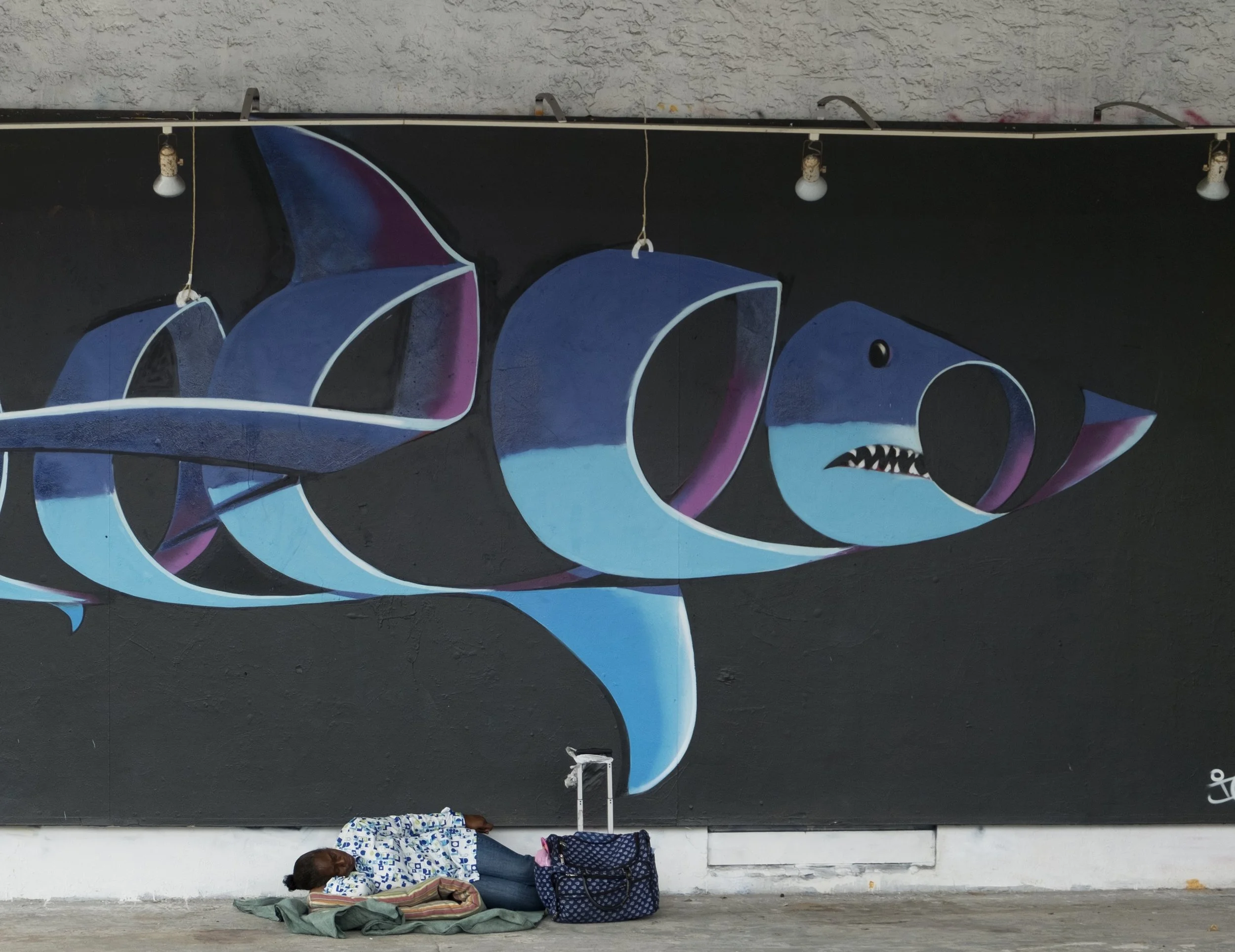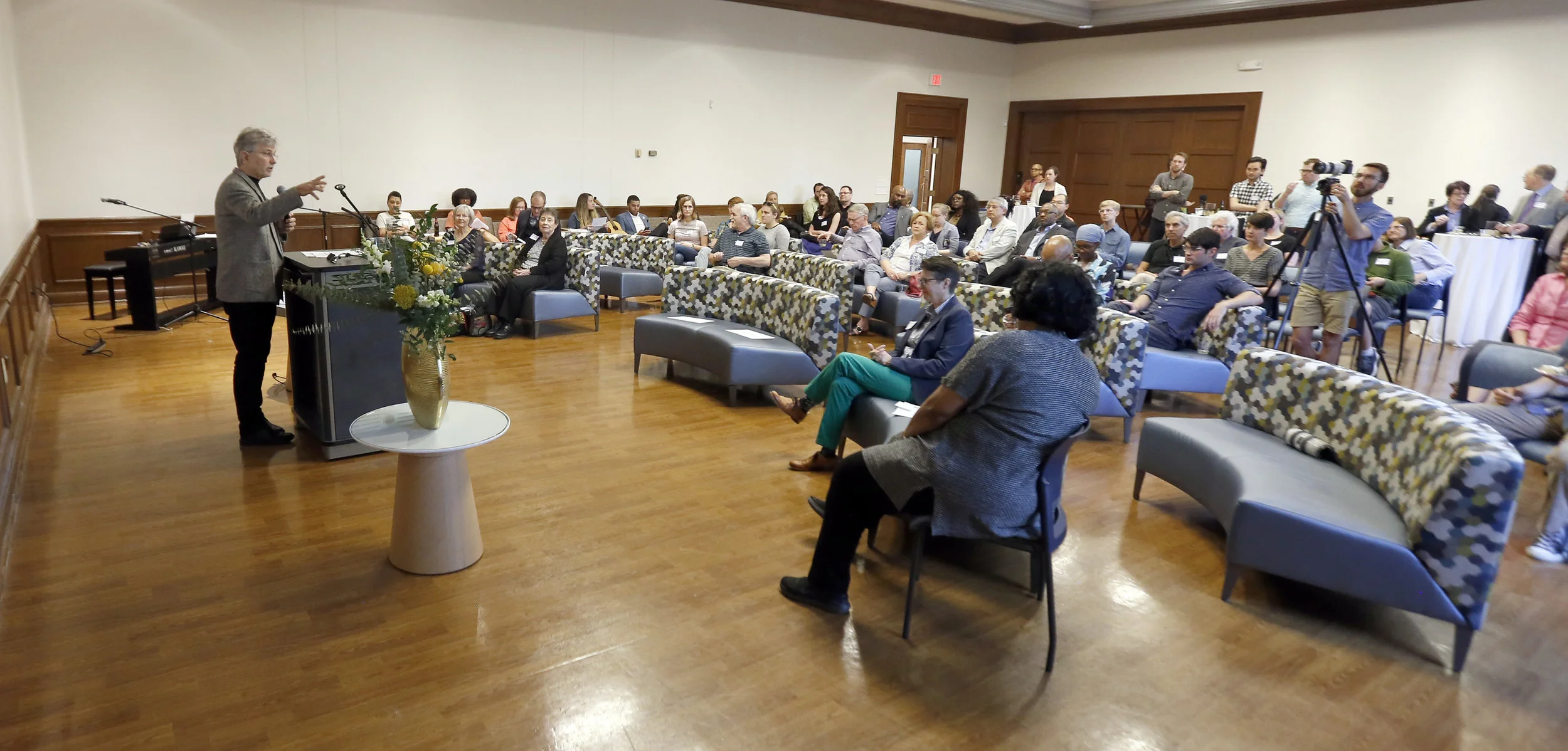While there is concern that religion and politics have entered into relationships that are too close, we should be even more concerned about the relation between religion and economics. Here are three questions to consider.
Read MoreDr. Stacey Floyd-Thomas is Associate Professor of Ethics and Society at Vanderbilt University Divinity School and College of Arts and Sciences. The following are her edited remarks at the Wendland-Cook inaugural event on April 10, 2019.
Read MoreVanderbilt Divinity School played host to the Summer Institute of the Vanderbilt Divinity School Public Theology and Racial Justice Collaborative. Held May 20-24, attendees gathered under the theme “Policy, Politics and Privilege: The Prophetic Response to Racist Governance.” The following were common readings that framed the week. These are recommended must-reads for context to the issues explored at the institute.
Read MoreBenny Overton is the President of the UAW Local 737. Committed to the cause of social and economic equality, Benny will be leading a course at Vanderbilt Divinity on co-op ventures. The following are his edited remarks at the opening of the inaugural event on April 10, 2019.
Read MoreMarcus Trammell is the Associate Director of the Wendland-Cook Program in Religion and Justice. A graduate of Vanderbilt Divinity School and a seasoned community organizer, Trammell shared his passion for justice and his firm belief that something better is possible.
Read MoreWhen we say justice–and this is the important thing–what we're really talking about is building the community. Justice is more than a lot of things we often connect with this term. It is building relationships. It is getting involved. It's taking a stand. It's transforming the status quo.
Read MoreOur April 10th reception featured guest of honor Barbara Wendland, who provided the gift to found the Vanderbilt Divinity School’s newest program.
Read MoreSince poverty and wealth are not only matters of money but also of power, it is time to move from charity and advocacy to what I am calling "deep solidarity."
Read MoreRather than asking how much authority the Bible should have in an ideal world, a better question would be what role the Bible actually plays in people's lives.
Read MoreJoerg Rieger and Peter Laarman unpack structural poverty and to address religion’s stake in the dramatic growth of economic inequality in American society.
Read MoreUnlike in the Roman Empire, many of our images of Mammon resemble our images of God. Instead of Caesar’s image that was imprinted on Roman coins, US Dollar bills bear an image of the Trinity and the words “In God We Trust.”
Read MoreSome people of faith are too timid when it comes to conflict, some are too eager to embrace it, and for whatever remains we have conflict resolution. This conclusion, however, is mistaken.
Read MoreGood news to the poor and freedom for the oppressed requires a more holistic response. This is what we are calling deep solidarity.
Read MoreThe future of the poor, of racial and sexual minorities, of working people (to which 99 percent of us belong), and of the environment, is never entirely in the hands of individuals, no matter how powerful they may be at the moment.
Read MoreA nagging problem remains that those who talk about stratification and the poverty line are unable or unwilling to address: What about the relationship between the classes?
Read More




















